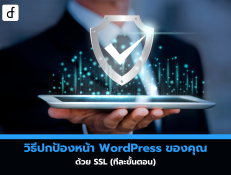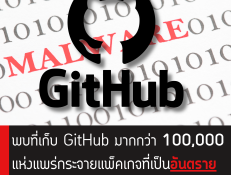
Protect your personal information with Domain Privacy services.
2025-04-17 04:38:14
Owning a domain is a crucial step in establishing an online identity.
Whether you are creating a personal blog, running a small business, or opening an online store, a domain is like "digital land" where you can build your home in the internet world (which is essentially a website).
But just like real estate in the physical world, owning a domain also has considerations, especially regarding the protection of your personal information.

When you register a domain, what happens?
Registering a domain is similar to buying a car or real estate – you need to register it correctly. When registering a domain, you must provide personal information to ICANN (the organization that oversees the global domain name system), including:
- Full name
- Address (home or workplace)
- Phone number
- Company or organization name (if any)
This information will be published in a public database called WHOIS, which anyone can search through the WHOIS Lookup tool.
WHOIS used to be useful... but today it has become a risk.
In the early days of the internet, WHOIS was designed to help programmers or domain owners easily contact each other, check domain ownership, or use it in legal cases.
But as the online world has grown to billions of users, the WHOIS database has become a source of information that allows spammers, fraudsters, and hackers to easily target domain owners.
Fortunately, there is currently a Domain Privacy service to protect this information.
So, what is Domain Privacy?
When you enable Domain Privacy, your personal information will no longer be displayed in WHOIS but will be replaced with:
- Proxy organization name
- General address and phone number of the service provider
- An email system that helps filter out spam and only sends relevant messages to you.
For example, if you register a domain through WordPress.com, the system will automatically and free of charge enable Domain Privacy, using the services of one of three companies specializing in privacy.
For example, if you use the WHOIS Lookup tool to check your domain registered with WordPress.com, you might see the name "Knock Knock WHOIS Not There, LLC" instead of your actual information.
Why is Domain Privacy important?
WHOIS is a target for data scraping, especially from:
- Spammer: Sends junk emails, makes nuisance calls, or sends advertising messages.
- Criminal: Using fake information as a bank/post office to trick and ask for passwords
- Identity theft: Applying for a credit card or loan in your name
- Threatening/Exposing Information (Doxxing): In cases where you discuss sensitive or controversial issues.
- Unwanted marketing: Although illegal, there are still companies secretly using WHOIS data to send business offers.
So, what is Data Scraping and how can Domain Privacy be protected?
Data Scraping is the use of programs to quickly extract data from a large number of websites. WHOIS has a simple and publicly accessible structure, making it a popular target for data miners and bots.
Some WHOIS Lookup tools even support "searching multiple domains simultaneously," which allows scammers to collect a large number of domain owner details in just a few minutes.
Enabling Domain Privacy will change the information displayed in WHOIS to that of the representative, preventing your real information from being leaked.
How do the Domain Privacy services of different providers differ?
Some service providers charge an annual fee, while others sell only specific features, such as spam filtering or email masking.
This service includes:
- Using representative information in WHOIS
- The system receives physical mail and emails related to the domain (do not use this address instead of yours on the website).
How to check if your domain has Domain Privacy enabled
You can check from:
- Domain registration confirmation email
- The "Manage Domain" page on the service provider's website
- Use WHOIS Lookup to see if your name appears.

Summary: Protect your online identity with Domain Privacy
In an era where cyber threats are increasing, Domain Privacy is not just an option — it is a necessity.
Registering a domain with WordPress.com not only gives you free Domain Privacy but also includes:
- Fast DNS system
- Free SSL certificate (enhance the security of your website)
- Unbeatable price (only $13/year on average for .com, .net, and .org)
Leave a comment :
Recent post

2025-01-10 10:12:01

2024-05-31 03:06:49

2024-05-28 03:09:25
Tagscloud
Other interesting articles
There are many other interesting articles, try selecting them from below.

2024-09-17 11:15:06

2024-04-09 04:26:05

2025-03-19 01:53:23

2024-03-08 04:53:01

2023-10-20 09:55:24

2023-10-30 04:53:34

2024-01-11 11:45:01

2024-11-14 09:50:55

2024-02-28 05:26:59
